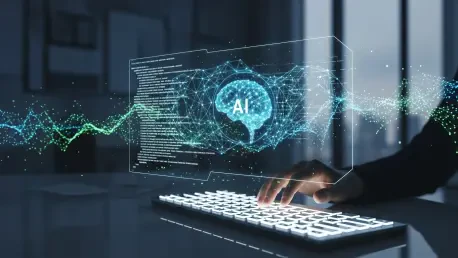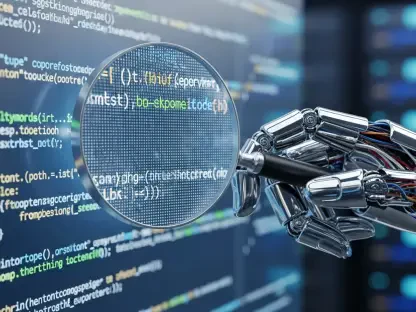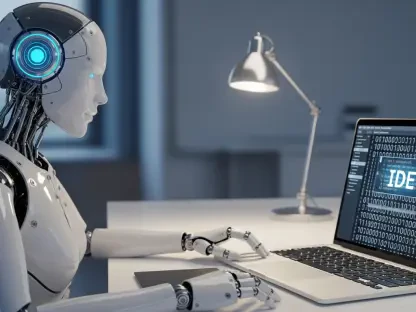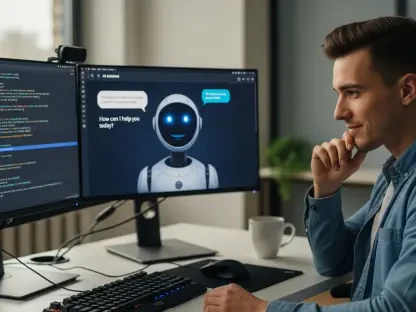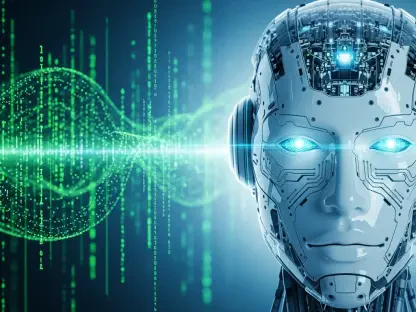I’m thrilled to sit down with Anand Naidu, our resident development expert, who brings a wealth of experience in both frontend and backend development. With his deep understanding of various coding languages and industry trends, Anand is the perfect person to shed light on the growing role of artificial intelligence in software development. In this interview, we explore how AI is reshaping daily workflows, its transformative potential, and the mix of excitement and concern it brings to the field. We also dive into its impact on new developers and the skills needed for the future.
How frequently do you and your team incorporate AI tools into your daily development work?
We use AI tools pretty much every day. I’d say it’s become a core part of our workflow, especially for tasks like coding and debugging. Most days, we’re leveraging AI to generate snippets of code or to get suggestions on how to approach a problem. It’s not just me—my team relies on it too, probably in about 80% of our projects. It’s become second nature at this point.
In which specific areas of development do you find AI to be the most valuable?
Honestly, AI shines brightest during coding itself. It helps with writing boilerplate code or suggesting optimizations, which saves a ton of time. Testing is another big area—AI can quickly identify potential bugs or edge cases we might overlook. And during code reviews, it’s great for flagging inconsistencies or style issues. Those are the spots where I’ve seen the biggest impact.
What’s your overall perspective on AI’s role in software development?
I’m largely optimistic about it. AI feels like a powerful ally—it’s exciting to see how much faster and smarter it can make us. I feel empowered when I use it to tackle complex problems. That said, I’m not blind to the concerns. There are valid worries about privacy and over-reliance, but on balance, I think the benefits outweigh the risks right now.
Where do you see AI making the most significant changes in the industry today?
Right now, AI is really shaking things up in coding and testing. The speed at which it can generate functional code or run automated tests is incredible—it’s cutting down development cycles noticeably. As for the idea that over half of developers think AI codes better than most humans, I’d say I partially agree. It’s often better at repetitive or structured tasks, but it still lacks the creativity and critical thinking humans bring to the table.
Are there any specific concerns you have about integrating AI into your work?
Yeah, data privacy is a big one for me. When you’re feeding code or project details into AI tools, you have to wonder where that data is going and who might access it. I’m cautious about sensitive projects. Job security is less of a personal worry, but I can see why others might feel uneasy. And as for trusting AI-generated code, I always double-check it—sometimes it misses the mark or introduces subtle errors.
Looking ahead, how do you envision AI transforming software development over the next five years?
I think AI will fundamentally change how we approach development. We’ll likely see even more automation, especially for routine tasks, freeing developers to focus on higher-level strategy and innovation. Tools will get smarter, maybe even taking on entire modules of a project. I believe the changes will mostly be positive—boosting productivity—but there’s a risk of losing some core skills if we lean too heavily on AI without understanding the fundamentals.
What impact do you think AI will have on aspiring developers entering the field?
It’s a double-edged sword. On one hand, AI tools can be a fantastic learning aid for junior developers. They can experiment, get instant feedback, and ramp up faster. On the other hand, with so much automation, it might be tougher for newcomers to prove their worth or stand out when entry-level tasks are handled by AI. I think it’ll raise the bar for what’s expected early in a career.
How important do you think AI skills will be for developers in the coming years?
They’re going to be crucial. I’d definitely prioritize hiring someone who knows how to leverage AI tools effectively—it’s becoming a key differentiator. My team and I have already started experimenting with AI platforms and learning how to integrate them into our processes. It’s not just a nice-to-have anymore; it’s rapidly becoming a must-have skill set.
What’s your forecast for the future of AI in software development?
I see AI continuing to evolve as a collaborative partner rather than a replacement for developers. In the next decade, I predict we’ll have systems that can handle entire workflows with minimal human input, but the human element—creativity, ethics, and problem-solving—will remain irreplaceable. I think we’re headed toward a hybrid model where AI augments our capabilities, but it’ll also challenge us to redefine what it means to be a developer. It’s an exciting, unpredictable road ahead.
